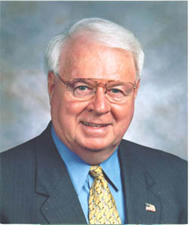From the Desk of Jack Healy
Regulations Diminish Job Growth
 |
Jack Healy –
The Voice for Manufacturing |
By Jack Healy, Director of Operations, MassMEP [email protected]
"Each regulation is a complex subject because it must be light enough to prevent entrepreneurship from being squashed."
— Jean Triole, 2014 Nobel Prize Winner for Economics
A 2014 study performed by RTI International examined the barriers to manufacturing growth in North Central Worcester County. The study found that regulatory challenges were impeding growth in close to 80% of the firms surveyed.
Figure 1. North Central Mass has the highest proportion of manufacturing
employment in the Commonwealth at 19.7%.
The study also found that costs like healthcare mandates, unemployment insurance, environmental regulations are as burdensome in terms of time and money. There was a general consensus among respondents about the amount of administrative overhead required to support such regulations. In the words of one survey respondent:
Regulations themselves (environmental) are not the problem; it’s the bureaucracy that goes along with it. The effort to comply is a heavy burden. You have to pay the state to file reports after you have done the work, thousands of dollars for fees alone. But the US EPA doesn’t charge fees. We must pay consultants who must approve. The fee is not based on production, but the number of employees…even if you don’t pollute. That needs to change. Requirements need to match actual pollution rates.
Such statements are not news for anyone working in manufacturing.
The National Association of Manufacturers (NAM) is, and has been, extremely vocal about the cost of regulations, which they now estimate to exceed $2 trillion dollars annually on a national basis. NAM recently appeared before Congress with a series of regulatory reforms that included a sensitivity towards small businesses; if enacted, these could go a long way toward improving the quality and cost of regulations.
This sensitivity is very important, given that 70% of our Massachusetts’ manufacturing enterprises are firms with less than 20 employees. They are obligated to deal with cumulative annual increases in regulations that are not only costly to the enterprises but to the economy, as well.
The regulatory restraint issue is not unknown to government, as both President Obama and Governor Patrick have initiated programs to identify and eliminate unnecessary regulations. Governor Patrick recently announced that the administration has reviewed all 1,791 executive branch regulations in existence on January 1, 2023 and amended or eliminated 255 of them.
Figure 2. Cumulative inflation-adjusted cost of manufacturing-related major regulations in billions of constant 2010 dollars, 1993-2011. Source: NERA Consulting
However, the continuum of new regulations overwhelms attempts for correction. There were 2,183 unique federal regulations — described in an additional 100,000 pages of legislation — enacted 1981-2012 that gives you an understanding of the significant growth of the compliance requirements.
Just staying abreast of the changes is a challenge, in of itself. Manufacturers who do not belong to associations such as AIM, who provide their membership with weekly updates in regulatory changes, will undoubtedly have compliance problems due to ignorance, as there is no uniform method for government dissemination of all regulatory changes and updates to individual companies in the manufacturing community.
In conclusion, we thought it important to note that 86% of the firms surveyed in the RTI study were in business for more than 20 years, while conversely there we no companies surveyed that were less than 5 years old. Although it is not possible to attribute the reason for a lack of startup firms in the North Central Region to regulatory constraints, it would be safe to assume that such regulatory constraints’ did nothing to encourage entrepreneurship. While we saw 320 new manufacturing startups last year across the state, these were offset by 460 closings as more than one entrepreneur sourced products offshore for ease of startup.
It should be noted that the state has provided an avenue for the improvement of regulatory issues by providing a regulatory ombudsman in the Dept. of Housing and Economic Development, Tim Wilkerson. Manufacturers with suggestion relative to regulations that impose significant compliance issues should contact Tim Wilkerson at 617-788-3667. Another finding of the RTI study was that none of the manufacturers surveyed were aware of this service.
—–
Have an Opinion?
Have an opinion to share? Send a Letter to the Editor. |
